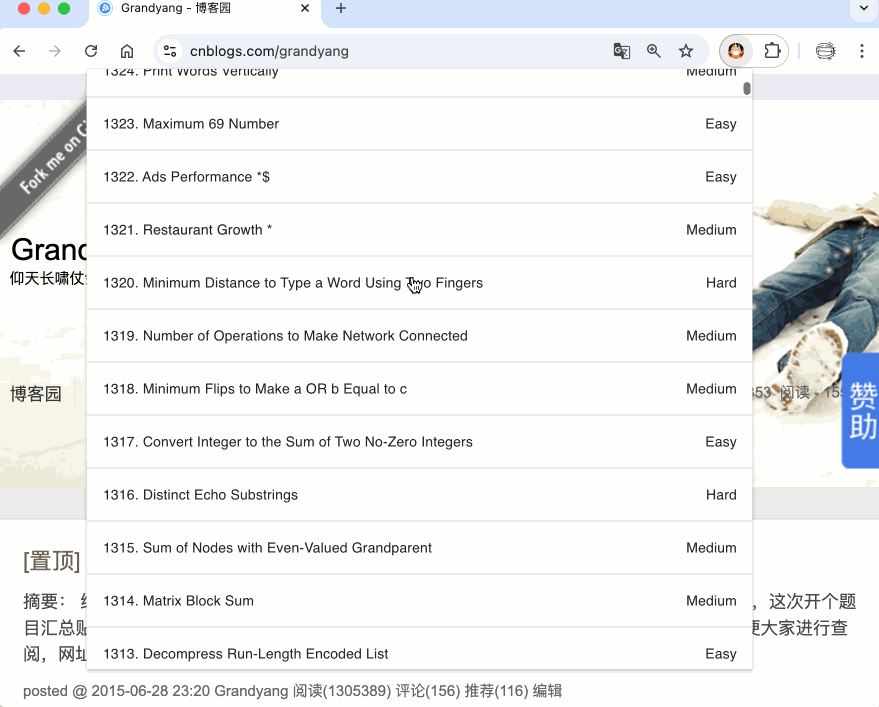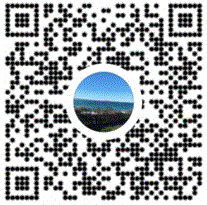IplImage 与 QImage 相互转换
在使用Qt和OpenCV编程时,对于它们各自的图像类QImage和IplImage难以避免的需要互相之间的转换,下面我们就来看它们的相互转换。
1. QImage 转换为 IplImage
IplImage *QImageToIplImage(const QImage * qImage) { int width = qImage->width(); int height = qImage->height(); CvSize Size; Size.height = height; Size.width = width; IplImage *charIplImageBuffer = cvCreateImage(Size, IPL_DEPTH_8U, 1); char *charTemp = (char *) charIplImageBuffer->imageData; for (int y = 0; y < height; y++) { for (int x = 0; x < width; x++) { int index = y * width + x; charTemp[index] = (char) qGray(qImage->pixel(x, y)); } } return charIplImageBuffer; }
2. IplImage 转换为 QImage
QImage *IplImageToQImage(const IplImage * iplImage) { uchar *qImageBuffer = NULL; int width = iplImage->width; // Note here that OpenCV image is stored so that each lined is // 32-bits aligned thus * explaining the necessity to "skip" // the few last bytes of each line of OpenCV image buffer. int widthStep = iplImage->widthStep; int height = iplImage->height; switch (iplImage->depth) { case IPL_DEPTH_8U: if (iplImage->nChannels == 1) { // IplImage is stored with one byte grey pixel. // We convert it to an 8 bit depth QImage. qImageBuffer = (uchar *) malloc(width*height*sizeof(uchar)); uchar *QImagePtr = qImageBuffer; const uchar *iplImagePtr = (const uchar *)iplImage->imageData; for (int y = 0; y < height; y++) { // Copy line by line memcpy(QImagePtr, iplImagePtr, width); QImagePtr += width; iplImagePtr += widthStep; } } else if (iplImage->nChannels == 3) { // IplImage is stored with 3 byte color pixels (3 channels). // We convert it to a 32 bit depth QImage. qImageBuffer = (uchar *) malloc(width*height*4*sizeof(uchar)); uchar *QImagePtr = qImageBuffer; const uchar *iplImagePtr = (const uchar *) iplImage->imageData; for (int y = 0; y < height; y++) { for (int x = 0; x < width; x++) { // We cannot help but copy manually. QImagePtr[0] = iplImagePtr[0]; QImagePtr[1] = iplImagePtr[1]; QImagePtr[2] = iplImagePtr[2]; QImagePtr[3] = 0; QImagePtr += 4; iplImagePtr += 3; } iplImagePtr += widthStep-3*width; } } else { qDebug("IplImageToQImage: image format is not supported:\ depth=8U and %d channels\n", iplImage->nChannels); } break; case IPL_DEPTH_16U: if (iplImage->nChannels == 1) { // IplImage is stored with 2 bytes grey pixel. // We convert it to an 8 bit depth QImage. qImageBuffer = (uchar *) malloc(width*height*sizeof(uchar)); uchar *QImagePtr = qImageBuffer; const uint16_t *iplImagePtr = (const uint16_t *)iplImage->imageData; for (int y = 0; y < height; y++) { for (int x = 0; x < width; x++) { // We take only the highest part of the 16 bit value. // It is similar to dividing by 256. *QImagePtr++ = ((*iplImagePtr++) >> 8); } iplImagePtr += widthStep/sizeof(uint16_t)-width; } } else { qDebug("IplImageToQImage: image format is not supported:\ depth=16U and %d channels\n", iplImage->nChannels); } break; case IPL_DEPTH_32F: if (iplImage->nChannels == 1) { // IplImage is stored with float (4 bytes) grey pixel. // We convert it to an 8 bit depth QImage. qImageBuffer = (uchar *) malloc(width*height*sizeof(uchar)); uchar *QImagePtr = qImageBuffer; const float *iplImagePtr = (const float *) iplImage->imageData; for (int y = 0; y < height; y++) { for (int x = 0; x < width; x++) { uchar p; float pf = (*iplImagePtr++); if (pf < 0) p = 0; else if (pf > 255) p = 255; else p = (uchar) pf; *QImagePtr++ = p; } iplImagePtr += widthStep/sizeof(float)-width; } } else { qDebug("IplImageToQImage: image format is not supported:\ depth=32F and %d channels\n", iplImage->nChannels); } break; case IPL_DEPTH_64F: if (iplImage->nChannels == 1) { // OpenCV image is stored with double (8 bytes) grey pixel. // We convert it to an 8 bit depth QImage. qImageBuffer = (uchar *) malloc(width*height*sizeof(uchar)); uchar *QImagePtr = qImageBuffer; const double *iplImagePtr = (const double *) iplImage->imageData; for (int y = 0; y < height; y++) { for (int x = 0; x < width; x++) { uchar p; double pf = 255 * ((*iplImagePtr++) - mini) / (maxi - mini); if (pf < 0) p = 0; else if (pf > 255) p = 255; else p = (uchar) pf; *QImagePtr++ = p; } iplImagePtr += widthStep/sizeof(double)-width; } } else { qDebug("IplImageToQImage: image format is not supported:\ depth=64F and %d channels\n", iplImage->nChannels); } break; default: qDebug("IplImageToQImage: image format is not supported: depth=%d\ and %d channels\n", iplImage->depth, iplImage->nChannels); } QImage *qImage; if (iplImage->nChannels == 1) { QVector<QRgb> colorTable; for (int i = 0; i < 256; i++) { colorTable.push_back(qRgb(i, i, i)); } qImage = new QImage(qImageBuffer, width, height, QImage::Format_Indexed8); qImage->setColorTable(colorTable); } else { qImage = new QImage(qImageBuffer, width, height, QImage::Format_RGB32); } return qImage; }
精简版:
QImage *IplImageToQImage(IplImage *image){ QImage *result; if (image){ uchar * qImageBuffer = NULL; int width = image->width; int widthStep = image->widthStep; int height = image->height; QImage::Format format = QImage::Format_Invalid; if (IPL_DEPTH_8U == image->depth && 3 == image->nChannels){ qImageBuffer = (uchar *) malloc(width * height * 4 * sizeof(uchar)); uchar *QImagePtr = qImageBuffer; const uchar *iplImagePtr = (const uchar *) image->imageData; format = QImage::Format_RGB32; if (!qImageBuffer){ qDebug() << "Insufficient memory for image buffer!" << endl; return result; } for (int y = 0; y < height; y++) { for (int x = 0; x < width; x++) { QImagePtr[0] = iplImagePtr[0]; QImagePtr[1] = iplImagePtr[1]; QImagePtr[2] = iplImagePtr[2]; QImagePtr[3] = 0; QImagePtr += 4; iplImagePtr += 3; } iplImagePtr += widthStep-3*width; } } else { qDebug("Image format is not supported: depth=%d and %d channels\n", image->depth, image->nChannels); return result; } if (qImageBuffer){ QImage *result = new QImage(qImageBuffer, image->width, image->height, format); } } else { qDebug() << "Image pointer is NULL" << endl; } return result; }






 浙公网安备 33010602011771号
浙公网安备 33010602011771号